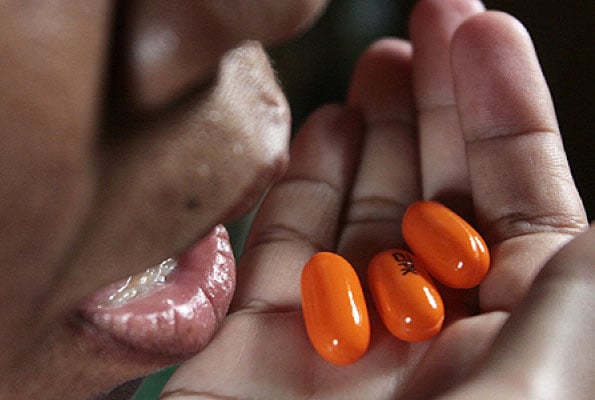Concern as Ibanda youth shun HIV medication

ARVs help to prevent the destruction of one’s immune system, thus prolonging life. PHOTO/COURTESY
What you need to know:
- According to Uganda Aids Commission (UAC) statistics, more than 50,000 new HIV infections in 2022 and 2023 were among young people aged 15-24 years. This translates into about 25,000 people per year and about 68 per day.
Leaders in Ibanda District have expressed worry over the rising number of youth living with HIV/Aids abandoning their medication.
The district health officer (DHO), Dr Julius Bamwine, says the drug adherence rate among the youth reduced from 7 percent in 2022 to 5 percent in 2023.
Dr Bamwine said the trend is increasing the spread of HIV/Aids among the urban communities in the district.
“The rate of spread of HIV is increasing among adolescents in urban areas such as Igorora Town Council, Ibanda Town, and Ishongororo Town Council, for rural areas it is slightly lower,” he said.
He said youth, especially those who are not in school, fail to adhere to drugs schedules because of work.
For those in schools, sometimes their medicine gets finished and they fail to get means of replenishing it.
“But we always follow them on the phone and deliver medicine to them because we interact with them to learn what challenges are making them fail to pick up their medicine,” he said.
Mr Wilbroad Atukunzire, a counsellor with The Aids Support Organisation (TASO) at Ishongororo Health Centre IV, said many youth fail to pick up their second dose of medication.
“We know that youth are stubborn, especially at the second time of getting drugs and as a counsellor, I follow TASO obligations because this is a target group and an area of focus,” he said.
Mr Atukunzire said health facilities should create friendly corners and community support systems that should bring youth together to help them take their medication.
“Facilities should have youth-friendly corners to separate adult patients from the youth since the latter should not pick drugs with the former. We have peer support and at a facility level where we have youth peers and adult peers because their preferences defer,” he said.
Ms Caroline Arituha, the district female youth counsellor, said some youth fail to take their medicine due to stigma.
“I would advise them to understand that contracting HIV is not the end of life because you still have a chance to do other activities as any other people, produce healthy children, and take care of your family,” she advised.
Ms Arituha said she is working with other social workers and facilities to bring relief to youth who are abandoning their medication.
“We are working with health counsellors and different media platforms, especially radios, to bring them on board and as well advising their caretakers,” she explained.
Mr Happy Herbert Mayanja, the district chairperson, said the youth should understand that life is wealth.
“The HIV/Aids we used to know in the early 80s, would kill many people but now, once you take your medication as directed by the health worker, you can live positively for many years because the government has provided enough facilities for our people to survive,” he said.




